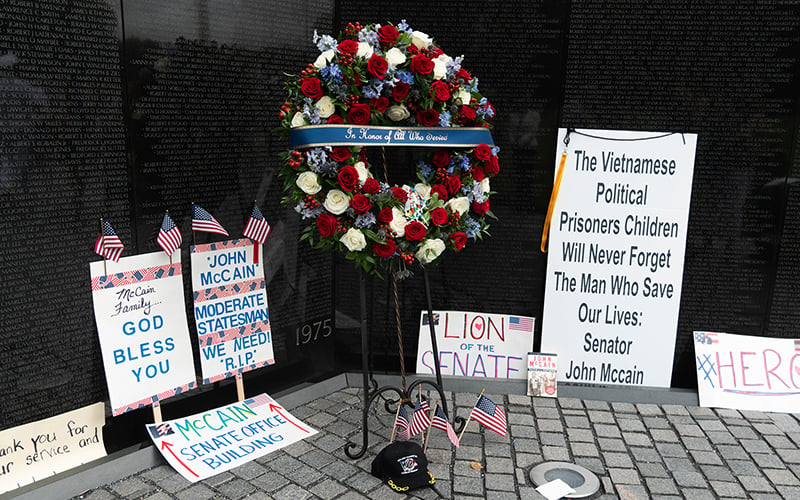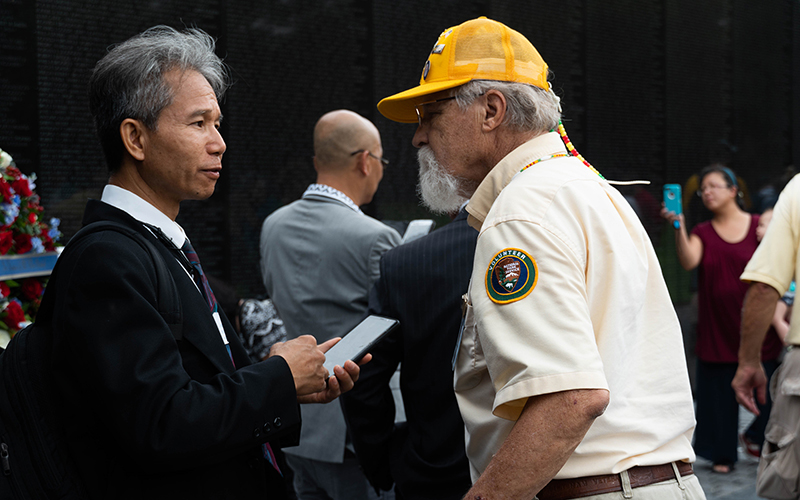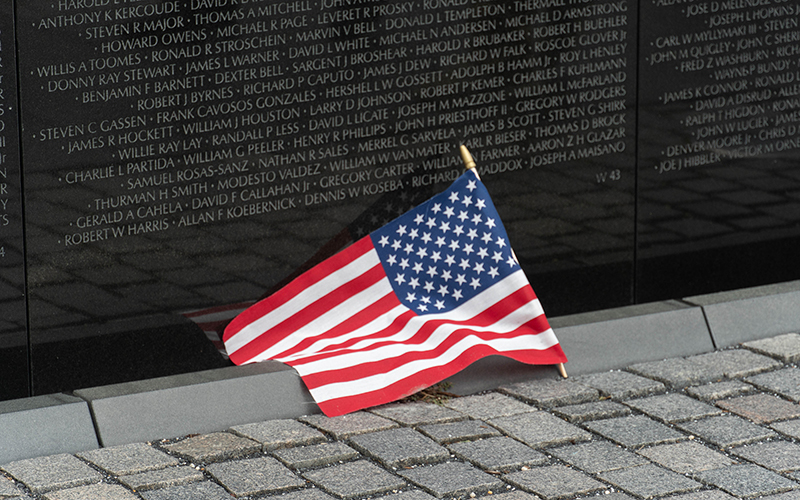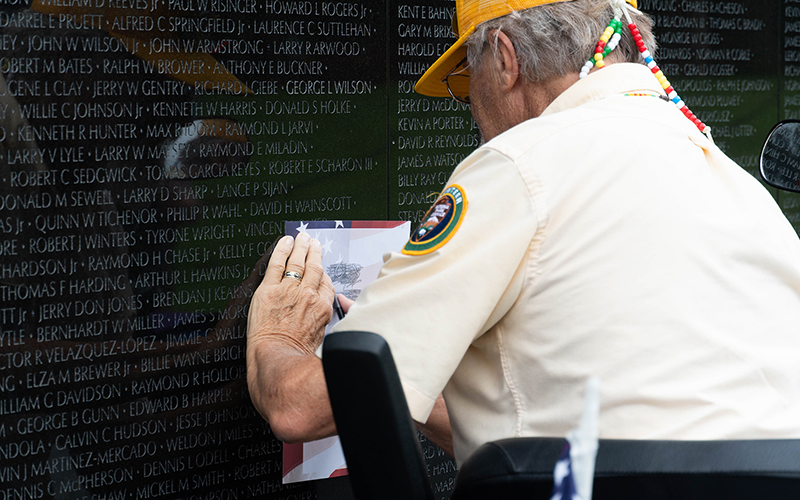
The wreath left at the Vietnam Veterans Memorial by Sen. John McCain’s widow, Cindy, was quickly surrounded by messages honoring the senator and former prisoner of war. (Photo by Renata Cló/Cronkite News)

National Park Service volunteer and Vietnam War veteran Paul Stancliff speaks with Vinh Ho, a Philadephia social worker whose family escaped Vietnam with help from the U.S. (Photo by Renata Cló/Cronkite News)

An American flag, one of the many items visitors leave at the Vietnam Veterans Memorial. Cindy McCain laid a wreath at the memorial Saturday in memory of her late husband, Sen. John McCain, who served in the Navy during the war. (Photo by Renata Cló/Cronkite News)

Veteran and National Park Service volunteer Paul Stancliff searches the Vietnam Veterans Memorial for the names “John” and “McCain” in hopes of making a rubbing to honor the late Arizona senator. (Photo by Renata Cló/Cronkite News)
WASHINGTON – Applause is not often heard around the Vietnam Veterans Memorial, but that was the response Saturday from a few hundred people who came to see Cindy McCain place a wreath in honor of her husband, Sen. John McCain.
The wreath-laying was one of the last events in a week of celebrations of the late Arizona senator, who spent more than five years as a prisoner of war in North Vietnam.
Those who turned out for the wreath-laying included graying veterans of that war and South Vietnamese refugees who credit McCain with helping them get out of their country, which was overrun by the North in April 1975.
“We say thank you to all Americans who opened doors, arms and hearts for us. Thank you,” said Quyen Ngo, who was there with others who said they were children of Vietnamese political prisoners who were later helped to come to the U.S.
The Saturday morning event was brief, literally a stop between the Capitol, where McCain lay in state, and Washington National Cathedral, where hundreds of political figures gathered for his funeral.
Under a cloudy sky, Cindy McCain walked to the vertex of the black granite walls flanked by Defense Secretary James Mattis and White House Chief of Staff John Kelly, both former generals. A sailor helped her place the large wreath of red, white and blue flowers; McCain stood in front of it for a moment before walking away.
It was not long before other visitors began placing signs and notes honoring John McCain for his service as a soldier and a senator.
Ngo, Vinh Ho and Thien Thauh Nguyen were among those who came up after McCain left and stood before the wreath.
-Cronkite News video by Lillian Donahue
It was the second time in as many days that the three honored McCain, who died a week ago after a yearlong battle with brain cancer. The Vietnamese said they spent hours in line Friday to visit the senator as he lay in state in the Capitol Rotunda.
“He literally campaigned for the Americans to save the lives of the South Vietnamese political (prisoners) and their families to come to the U.S., to be able to live here, to have freedom in America,” said Ho, a social worker in Philadelphia who traveled to Washington to honor McCain.
They left signs that thanked McCain and the American people, who they said “saved our lives.”
That drew the attention of other visitors, including Paul Stancliff, 74, a Vietnam veteran and National Park Service volunteer who introduced himself to the three. They talked and took photos together before Ngo helped Stancliff back to his motorized scooter.
“We fought together,” Ngo said, to which Stancliff responded, “But now, friends.”
Stancliff met his wife, Cindy Hollender-Stancliff, at the Wall. They have been volunteering with the National Park Service for decades and try to help veterans who may be suffering from post-traumatic stress to overcome their fears when they visit the wall.
But Stancliff said they were at the Wall today specifically to pay respect to McCain. Although he believes the word “hero” is overused, Stancliff said he thinks McCain was one for always putting the country first.
“It was not about what was going to make John McCain more famous, more important, whatever,” he said. “He run for president twice. He was defeated twice. Imaterial. What he was doing was what he felt was best for the country.”